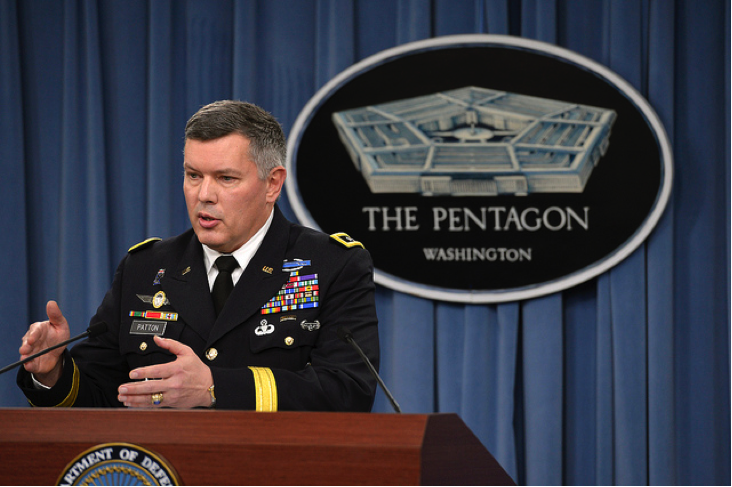A great documentary sheds light on an underrepresented niche of human life and exposes us to issues we never before considered. Documentaries should be creative and enlightening, but when it comes to being hard-hitting, some hit harder than others. Rather than examining sushi chefs, babies, or folk singers, the Academy Award-nominated “The Invisible War” documents cases of sexual assault in the United States military. The documentary demonstrates how these instances of sexual assault and harassment are not simply occurring, but are largely being ignored by a system that fails to recognize them as legitimate crimes.
In the film, women from different branches of the US Armed Forces are interviewed, and all of their stories possess several similarities: the victim’s inability to access an adequate justice system, discharge for the victim, and advancements in the careers of the perpetrators.[3] One of the largest criticisms of “The Invisible War” is that a few different accounts are not enough to prove a rampant problem exists beyond exceptions to the norm. However, the data tells a different story; in 2010, 108,121 veterans screened positive for sexual trauma and more than 68,000 visited Veterans Affairs for outpatient visits related to sexual abuse.[2] The Department of Defense also estimates that in 2010, around 19,000 sexual assaults were committed against active duty service personnel. In 2012, that number rose to 26,000 victims, which is a 34 percent increase in only two years.[1] About 3,000 of these were reported, and only 244 convictions were brought against perpetrators.[3]
Moving beyond the scope of the documentary, we know that sexual misconduct scandals and cover-ups are not new phenomena. For example, the 1991 Navy Tailhook scandal, the 1996 Army Aberdeen scandal, and the 2003 Air Force Academy scandal were all widely publicized instances of sexual misconduct that the military has had to publicly address.[4][5][6] Just like any other situation of public outcry, the military and Department of Defense did try and alleviate the public concerns by offering solutions casting blame for whichever situation they were dealing with at the time. However, as the aforementioned data proves, these efforts are doing little to address the actual problem.
While the screening of “The Invisible War” did prompt military officials to convene and discuss what steps could be taken to remediate the problems of military sexual assault, none of the discussion has led to any real solutions. There is a new policy in the Marines on investigating sexual assault claims, and Secretary of Defense Leon Panetta’s new requirement mandates that superiors outside of the victim’s ranks now handle assault claims, but all of these new policies just work to illustrate how inept the military is at handling problems of sexual abuse.
Currently, an undisclosed woman who accused three men at the US Naval Academy of raping her is standing in for a military tribunal. The fact that she is able to receive a trial is a signal that the military is taking these assaults seriously, bringing to light serious questions about military justice. According to a front-page article in The New York Times published in September, the US military uses a special pre-trial mandate known as Article 32 to decide whether or not an issue is serious enough to be court-martialed. What is special about Article 32 is that it applies specifically to a military tribunal outside of the regular constraints of the civilian court system. In this kind of trial, anything can be said or asked. For hours on end, the woman on trial was questioned on whether she wears a bra, what she does while participating in oral sex, and whether she apologized to another military member with whom she had sexual relations for “being a ho.”[7] All of these examples fit the definition of victim blaming, an act that criminalizes a victim as responsible for the crime committed against them. It is a tactic that is not admissible in a standard civilian court.
In “The Invisible War,” the assaulted service personnel who discuss their assaults describe an environment of hierarchy and fraternity that seriously punishes people who seek help. Although the military is responding with attempts to change this by allowing victims to report to a higher chain of command, there are still many attempts to keep victims silent. When individuals are assaulted while on active duty, they often fear retribution if they report on another service member in their unit.
Simultaneously, some serious sexual misconduct is not reported as “sexual assault” at all, and academy offenses are not included in the specific data released by the Department of Defense. Multiple instances of assault by a single individual or many individuals is not included, so data understates the number of perpetrators who were active in committing the crime.[7]
It’s important to remember though that beyond the statistics and rhetoric, the act of actually reforming the military system so that it properly addresses the issue of sexual assault is a complex one. As of September 2011, there were more than 1.4 million active duty military personnel in the United States, making the military one of the largest institutions in the country. Structured in a strongly hierarchical way, the military is a difficult place to legislate changes without disrupting the entire system. The Uniform Code of Military Justice is also importantly an independent process of the military judicial system separate from the civilian court system. In order to enact change, the military, the public, and Congress need to agree on the issue, which is difficult because of how commonly misunderstood issues of sexual assault are. [8]
Like any other political issue, difficulty in implementing change should not be a reason that the issue is ignored, covered-up, or put on the congressional back-burner. To experience sexual assault is a seriously traumatic event, and by denying our military men and women our support and legal protection, we are denying them the respect and dignity they deserve as members of the US military, as Americans, and as human beings.
On a more logistical level, the issue of continuing to ignore sexual misconduct is an increasingly large strain on the American taxpayer. The current Veterans Affairs budget , responsible for funding treatment for the lasting physical, mental, and emotional trauma of assault victims is already several billion dollars a year, with over three billion dollars just going towards the organization’s IT infrastructure.[9] According to the RAND Institute, an international research organization, the failure to properly address sexual assault in the military cost the US $3.6 billion in 2012.[10] Because the US military does not have a very strong preventative education program teaching soldiers about the legal parameters and effects of sexual assault, nearly all of the costs are associated with alleviating trauma that has already occurred. Because of the stigmatization around assault in the military, victims often require extensive testing and treatment for PTSD when what they are actually trying to overcome is sexual trauma. By all financial standards, acknowledging, addressing, and adding preventative measures to address the problem is much more cost-efficient than paying enormous medical costs to treat an incorrectly identified trauma, a trauma that is further compounded by ostracization and isolation created by an unsupportive administration.
If the military is going to successfully address the issue of sexual assault and harassment within its ranks, it requires an honest examination of the current system of justice and service in order to understand where the system is failing. By examining previous military assault trials, the current Article 32 issue, and information like that presented in “The Invisible War,” it becomes apparent that the military needs to add preventative educational programs for all service men and women about the facts surrounding sexual misconduct in the military. We need to reform the current chain of command system for victims of such assaults so that they can seek help without fear of retribution, and an atmosphere of support and dignity needs to be emphasized throughout all ranks and and branches of the Armed Services. Men and women need to be viewed as equally responsible for committing acts of sex assault, equally capable of being victims, and seen as equals within the eyes of the courts. Veterans Affairs needs to be supportive in offering mental health and counseling services, as well as physical medical services for those victims who need them.
Most importantly, however, the Uniform Code of Military Justice needs to be revised so that victims of sexual assault are able to seek justice in a civilian court and outside the military chain of command. In order for the Department of Defense to be successful in achieving all of the reforms, there must be a tangible social and legal penalty associated with committing sexual violence. This penalty is only possible when military members are held accountable outside the system that too often works to protect them in order to save face.
Enacting change to the system means holding the military accountable for its reforms and actions, but also for the country to help them in their attempts to do so through legislation and community support. Like any other criminal activity in a large, bureaucratic organization, it is not possible to simply create some rules that immediately fix the system. When addressing assault, the military is attempting to create guidelines for human behavior and lawfulness – a task that is never easy.
Michael Trudeau, a Northeastern graduate now studying at Harvard University, served in the United States Navy as a member of the Submarine Force. Trudeau did so at a time when women were not permitted on submarines for reasons of integration, although since then several women have recently been allowed to join Submarine Forces with no reported problems. According to Trudeau, any time his crew disembarked and interacted with female soldiers and civilians “…they always did so professionally.”
Trudeau’s account helps to remind us that while the numbers and data around this issue of sexual assault are daunting, it does not necessarily mean that every service member is either a victim or a perpetrator of sexual violence. The issue of sexual assault in the military is at the forefront of civilian-military relations and service men and women are very much aware of it, even if none of the veterans he ever spoke with spoke up about having experienced assault personally. Although the number of violent sexual accounts are numerous, it is important to put it in perspective; while thousands of assaults are reported every year, the number of active military members is over 1 million. This reassuring perspective proves that while sexual assault is still an immensely important issue, it still represents exceptional behavior exhibited by only a minority of service members.
Hope is further renewed by Senator Kirsten Gillibrand (D-NY) who is actively trying to pass a proposal that would strip top military commanders of their ability to prosecute sexual assault cases and would instead give military prosecutors the ability to proceed with such allegations.[11] Although Republican senators do not approve of such a far-reaching measure, Politico reports that Sen. Gillibrand’s ability to reach across the aisle may enable her to achieve the required 51 votes. Seeing as she was able to do the exact same thing while trying to expand military service to openly gay Americans, there is hope that she will be able to accomplish this feat as well.[12]
Reformation of the current atmosphere and judicial system of the United States military may seem difficult, but sources ranging from The New York Times to Academy Award-nominated documentaries continue to support the idea that it is an absolutely necessary reformation. By working politically and socially to create an atmosphere of acceptance and respect as well as an egalitarian court system that recognizes the problem of sexual violence as a reality, the United States can prove that it stands behind its veterans and active duty military members both abroad and at home.
Kaitlin Beegle
Political Science & International Affairs ‘18
[1] http://thinkprogress.org/security/2013/07/23/2342321/6-reasons-military-sexual-assault/
[2] http://en.wikipedia.org/wiki/The_Invisible_War
[3] http://invisiblewarmovie.com/
[4] http://www.armed-services.senate.gov/imo/media/doc/Recent_Military_Sexual_Assault_Scandals_06-04-13.pdf
[5] https://web.duke.edu/kenanethics/CaseStudies/Tailhook&USNavy.pdf
[6] http://www.washingtontimes.com/news/2011/jan/8/list-military-scandals/
[7] http://www.nytimes.com/2013/09/21/us/intrusive-grilling-in-rape-case-raises-alarm-on-military-hearings.html?ref=todayspaper
[8] http://www.infoplease.com/ipa/A0004598.html
[9] http://www.va.gov/budget/docs/summary/Fy2014_Fast_Facts_VAs_Budget_Highlights.pdf
[10] http://www.huffingtonpost.com/2013/07/16/military-sexual-assault-cost_n_3606413.html
[11] http://www.huffingtonpost.com/2013/07/29/kirsten-gillibrand-military-sexual-assault_n_3669914.html
[12] http://www.politico.com/story/2013/07/kirstin-gillibrand-intensifies-effort-on-sex-assault-bill-95014.html



